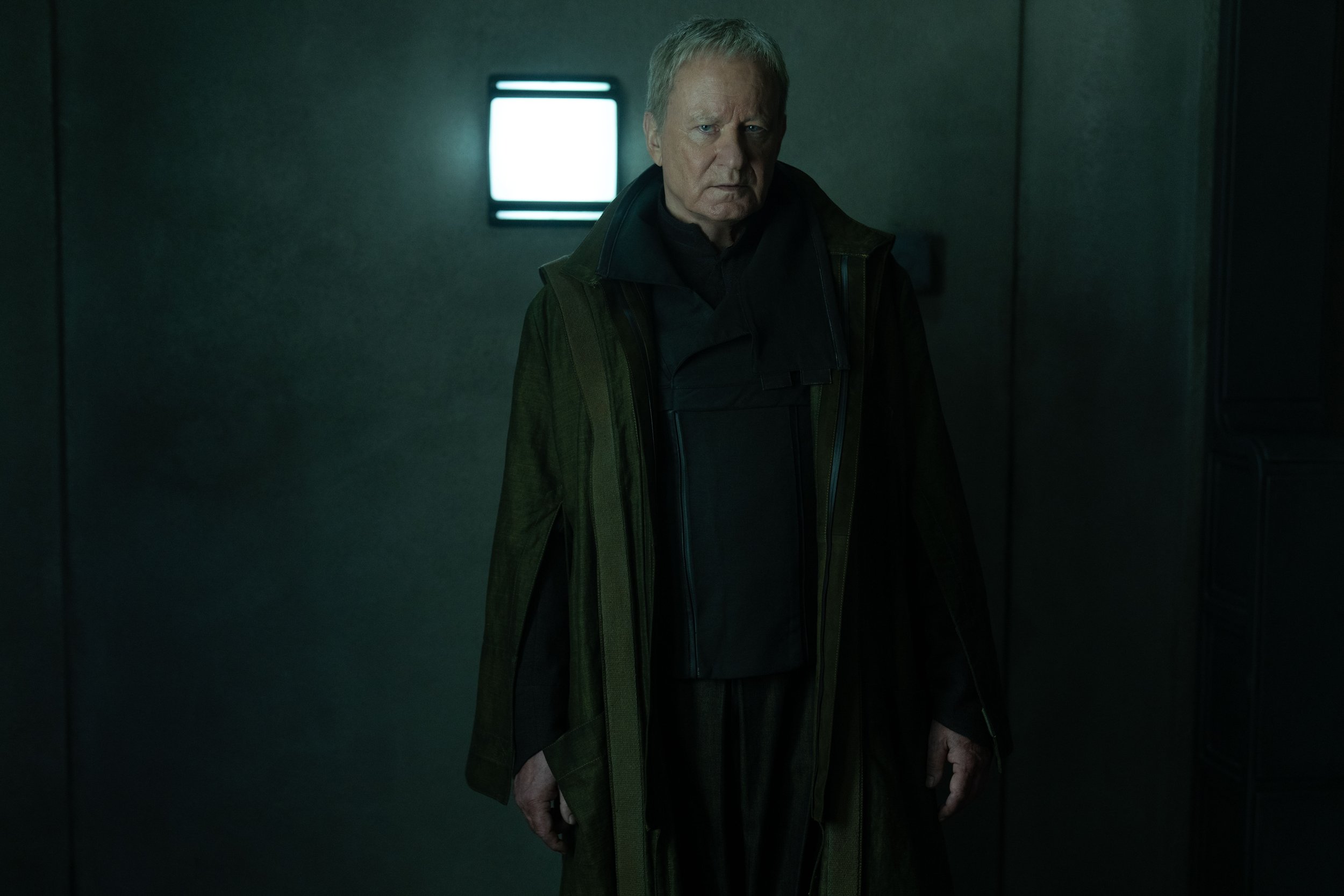Original-Cin Chat: Burning the Future with Andor's Stellan Skarsgard and Genevieve O’Reilly
By John Kirk
The first three eps of Season 2 of Star Wars: Andor - arguably the bleakest installment of the Star Wars franchise – were released this week. Unlike the swashbuckling flamboyance and high ideals generally characteristic of the franchise, Andor explores its humanity and the sense of loss that comes with revolution.
Original-Cin was fortunate to sit down with two of the leading actors in the series to talk about the necessity of loss to save hope in the ongoing saga of the Empire and the Rebellion. Stellan Skarsgård plays Luthen Rael, an antiquities dealer who uses his connections to the upper echelons of high society on the planet of Coruscant (the seat of government of the Galactic Empire) to gain intel and initiate clandestine heists and raids to fund splinter rebel cells across the galaxy. He has a great deal to lose: his business, his fortune, his status. Yet he is prepared to do so at a moment’s notice.
Stellan Skarsgard
“Luthen is ready to burn his future.” Skarsgård says. “He said it all in Season One.” He’s referring to the epic speech in Season One that clearly marks out the lines this character has drawn to measure the length of his sacrifice. Here is the link to that monologue.
https://www.youtube.com/watch?v=-3RCme2zZRY&t=61s
“You feel that same urgency. It’s all written in the scenes. I’ve never experienced that before in a script.”
Likewise, with Genevieve O'Reilly’s character, Senator Mon Mothma. A legacy character from the first trilogy (originally played by Caroline Blakiston), Mon is a senator in the Empire who secretly uses her personal family fortune and political influence to hamper the machinations of the Emperor Palpatine and secretly assist the Rebels. She does so at great risk to her career, her family and her personal wealth. Like Luthen, she is ready to do so, but feels the loss her choices cost more poignantly.
Genevieve O’Reilly
“You said it yourself. It’s the exploration of the humanity. Therefore, it’s what these ideas cost. The ideas aren’t just winner, loser, bad, good, but that we’re all richly complex and these ideas cost us and our families. Pain and consequence are a result of ideas.” O’Reilly says.
“So, what the cost?” Skarsgård adds about Luthen. “He has to sacrifice people, like any general. It takes years afterwards to decide if these were good sacrifices.”
The sense of sacrifice is heavily pronounced in Season Two. All the characters have something to lose and we see that very clearly. But this, of course, is the foundation that Star Wars: Rogue One established to point the narrative towards Star Wars: A New Hope (Episode IV).
Of course, this has to be an expected theme. But unlike A New Hope, this is seen not through the polarized viewpoint of the Dark Side or the Light Side of the Force, but through the inherent greyscale of humanity and the cost of the struggle that entails.
Stellan gives us an example: “The wonderful part about Kleya is that she sees what’s happening. She knows.”
In Season Two, we learn more of the backstory of Kleya, Luthen Rael’s assistant, played by Elizabeth Dulau. Without revealing spoilers, she keeps Luthen’s confidence and is an integral part of his operations. She provides an excellent example of what sort of cost to the Rebellion these leaders are ready to make.
The scale of other personal losses is shown too. Mon Mothma’s character is rich with familial responsibilities and duties. Her expansion in this story is key to understanding the stakes she puts up in support of the Rebellion.
“She’s not just a senator,” O’Reilly says. “She’s a mother, a wife, a cousin, a friend, but also a foe, a threat and a champion. The space that she needs to play all of that? (Writer) Tony (Gilroy) has given story space and screen space to Mon that shows her in a way that she’s never been seen before.”
There is a lesson in all of this though. The necessity of loss in the pursuit of change for something better is inescapable and the tone is consistently clear throughout both seasons. But it’s felt ever so much in the second one. It is a clear understanding that nothing comes without a cost, particularly change.
Skarsgård outlines this for us.
“Of course, it’s always sacrifice. It’s other people. Luthen doesn’t show much of how difficult it is to sacrifice other people, but of course, it is difficult. It’s worse because he is a good person. The cost isn’t just people, but his own humanity, but he doesn’t want to say that.”
While the story’s hero, Cassian Andor (Diego Luna) is the titular focus of the story, how he becomes the essential rebel officer who assists in the delivery of the Death Star plans, etc., his sacrifice isn’t made clear until the end of the season. But it is the detailed description of these two pivotal characters that show us what the true cost of establishing the Rebellion is: in their cases, it is the very core of their humanity: their loves, their ambitions, their futures that are the fire in which the Rebellion burns.
But what about the actors?
“This was a special project to be a part of. It’s hard to say good-bye to all of it.” Genevieve reflects.
“The happiest project. We went through COVID, strikes – it took us five years to complete this. It’s what we’ve been through together.” Skarsgård adds.
While there may be little joy in for the characters in this story of epic level sacrifice, there can be no doubt what this season offers fans. The legacy these actors have created for their characters sets the backstory for the greatest event in Star Wars canonical lore and describes the cost for that epic battle.
Star Wars: Andor – Season 2is released on Disney+.




